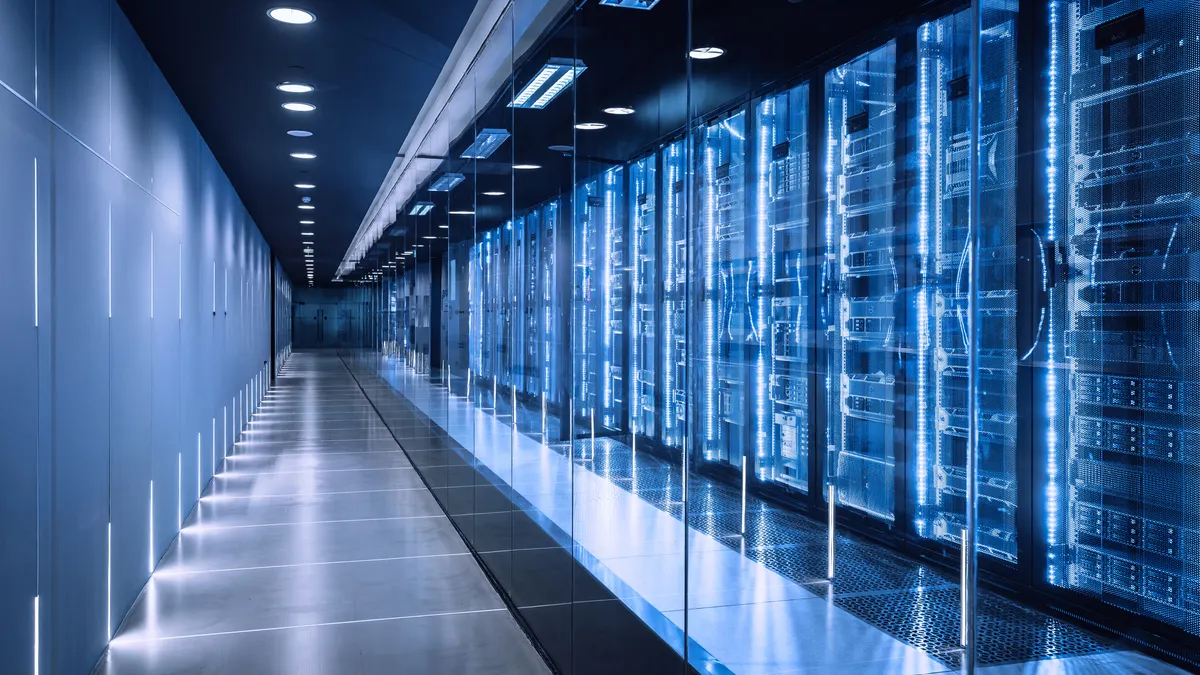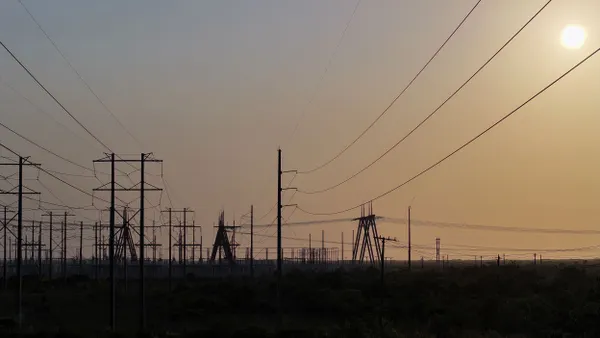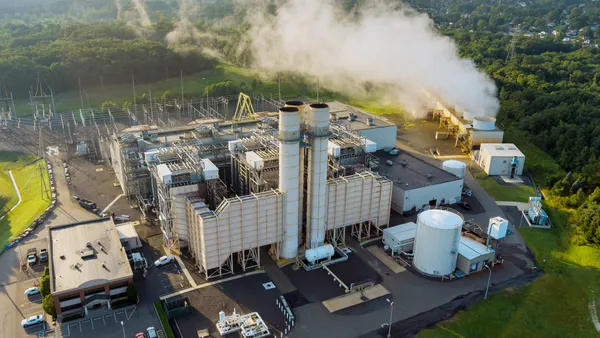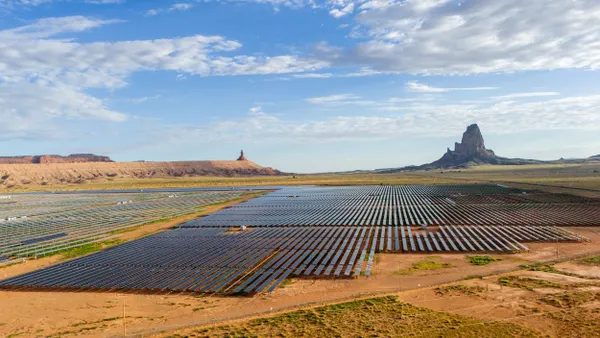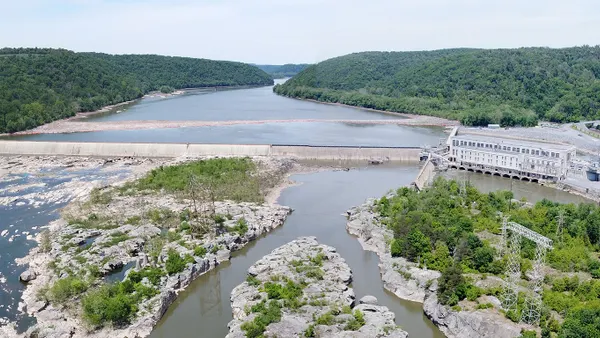Dive Brief:
- The Federal Energy Regulatory Commission on Friday rejected a proposal to limit the size of the Midcontinent grid operator’s interconnection queue study clusters, partly because it would offer exemptions that the agency said could undermine the cap’s purpose.
- In addition, the cap could hurt the Midcontinent Independent System Operator’s ability to meet potential near-term power supply shortfalls, according to FERC. The agency said it agreed with National Grid and others that a cap needs to ensure that interconnection requests can be processed efficiently while not delaying new generating capacity needed to meet growing supply shortages.
- FERC Commissioner Mark Christie disagreed with the decision to reject the cap. “MISO is like a homeowner whose house is on fire. MISO is trying to train the most readily available water hose on the fire as quickly as possible to save the house, an action the states in MISO support,” Christie said. “The majority acknowledges the house is on fire and that the hose MISO has chosen will likely work, but then, in classic Kafkaesque fashion, says MISO cannot use the hose. Meanwhile, the house burns.”
Dive Insight:
Grid operators around the United States face major interconnection queue backlogs, and they have been working to reform their processes for studying requests by generators and energy storage developers to connect to the grid.
MISO’s 2022 interconnection queue cycle, for example, included 171 GW, exceeding its peak load by about 50 GW, according to the grid operator, which has a footprint that runs from Louisiana to North Dakota.
In an effort to ease its interconnection backlog, MISO in November proposed two sets of interconnection reforms: a cap on the amount of capacity to be studied in a review cycle and requirements aimed at weeding out speculative projects.
MISO proposed several exemptions to its cap, including for requests from a state utility commission, cooperative utility board or other “relevant electric retail regulatory authority” for interconnection reviews for generating facilities needed to meet state reliability or policy needs. Also, power plant owners planning to replace a retiring generator with a larger facility could seek an exemption.
The grid operator’s proposals were supported by the Organization of MISO States, which represents state utility commissions in MISO’s footprint. But Alliant Energy, DTE Electric, NextEra Energy Resources and others opposed the proposed cap.
In its decision, FERC approved MISO’s proposal for increased milestone payments, an automatic withdrawal penalty for exiting the study process, changes to certain withdrawal penalty provisions, and expanded site control requirements for interconnection facilities.
However, FERC said that while MISO showed that a limit on the size of its interconnection study clusters may be helpful, its proposal contained several key flaws.
“We agree with multiple commenters that providing for exemptions to a cap has the potential to undermine the reasons for imposing a cap,” FERC said. “The uncapped exemptions that MISO proposes here could diminish or erase any reductions in queue size, significantly diluting or erasing the efficiency, transparency, and other benefits MISO contends will result from imposing a cap.”
Also, MISO’s cap exemption proposal creates priority access to its interconnection process for exempted resources, which discriminates against non-exempt resources, a conflict with FERC’s open access requirements, the agency said.
FERC’s Christie dissented from the decision to reject the proposed cap.
“A cap is admittedly a blunt instrument, but it is also a logical one if the goal is to enable MISO to focus its undeniably limited resources to maintain an orderly and efficient interconnection process,” Christie said.
Further, Christie said the cap exemptions are not unduly discriminatory or preferential because the interconnection requests eligible for an exemption would be more likely to reach commercial operation than other projects and, therefore, would not be “similarly situated” to other interconnection requests.





